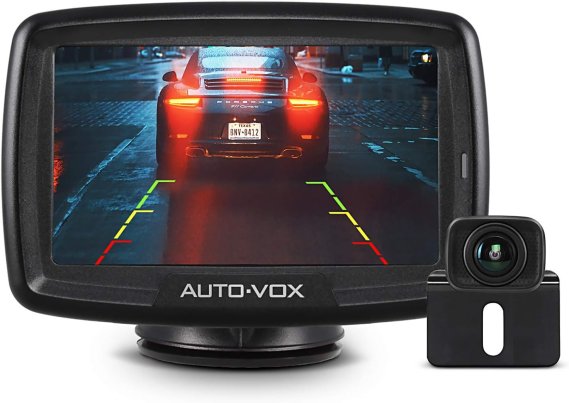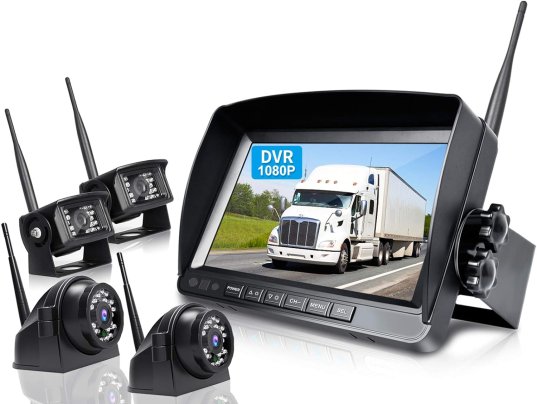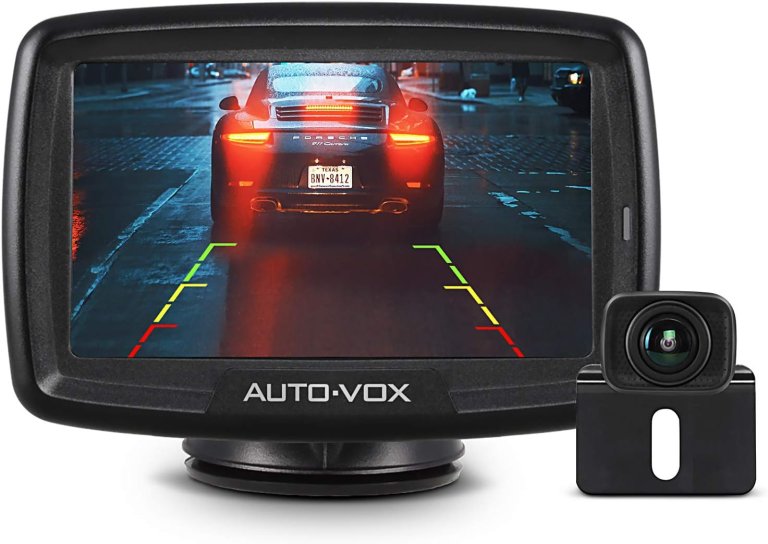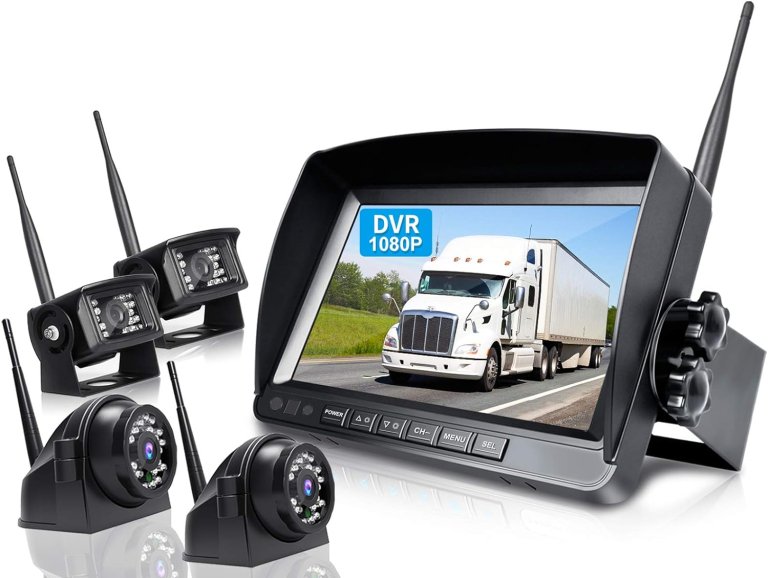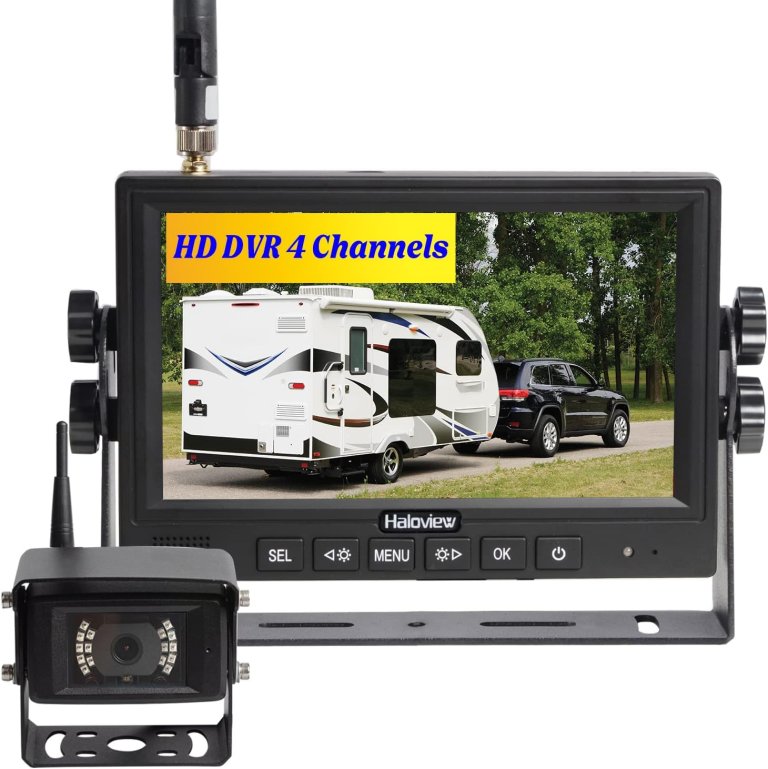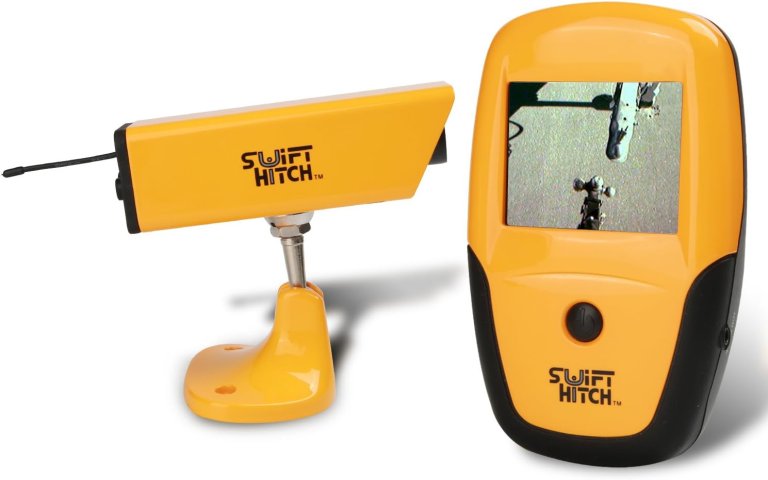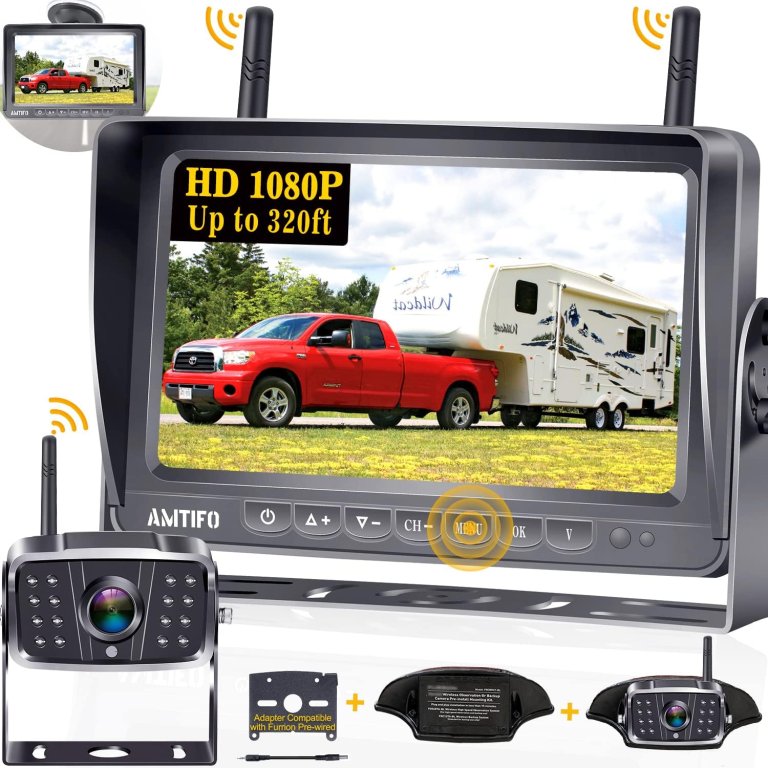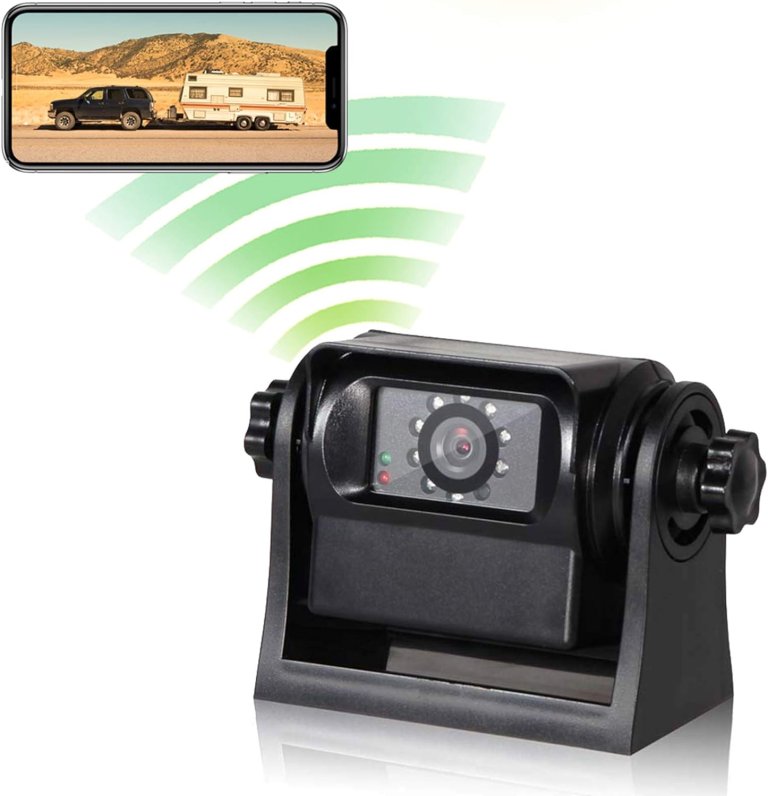We may earn revenue from the products available on this page and participate in affiliate programs. Learn more ›

Towing a trailer, camper, or other vehicles can be challenging for several reasons. It can be tough maneuvering around obstacles, backing up, and parking in general. A camera positioned near the trailer hitch can be a big help. Wireless options are great because they require less work and mechanical know-how to connect them to your truck or trailer compared to fully wired units. Whether you plan on towing your dirt bike to the track, taking your RV camping, or simply want to drop some trash at the dump, a wireless trailer hitch camera can be indispensable. Since they all have different features, it can be tough to select the right one for your specific needs. Not sure which one checks all the boxes? We’ve got that covered.
Summary List
- Best Overall: Iball Wireless Magnetic Trailer Hitch Rear View Camera
- Best Value: Auto-Vox CS-2 Wireless Backup Camera
- Best for Recording: Zeroxclub 9‘’ Wireless Backup Camera
- Honorable Mention: Haloview 7” Wireless RV Backup Camera System
- Best Portable: Swift Hitch Digital Wireless Backup Camera
- Best Weather-Resistant: Amtifo RV 7” Wireless Backup Camera
- Best Smartphone App Compatible: Eway Wi-Fi Magnetic Hitch Wireless Backup Camera
Our Methodology
I took several factors into consideration when compiling this list of the best wireless trailer hitch cameras. I included two types: products that are 100 percent wireless and products that are still considered wireless due to how they transmit signals but require some wiring in the hitch area in order to operate. I focused on brands that deliver at a minimum a 110-degree field of view. Each camera has different features that appeal to different people, whether it’s portability, the ability to record footage, or smooth operation at highway speeds. I made sure to include products in a range of prices to suit a variety of budgets, and I looked at consumer reviews to see how these cameras operate in real-world conditions. For more information on our methodology, go here.
Best Trailer Hitch Cameras: Reviews & Recommendations
Best Overall
Iball Wireless Magnetic Trailer Hitch Rear View Camera
See ItBest Value
Auto-Vox CS-2 Wireless Backup Camera
See ItBest for Recording
Zeroxclub 9‘’ Wireless Backup Camera System for RV Truck Trailer Camper
See ItHonorable Mention
Haloview 7” Wireless RV Backup Camera System
See ItBest Portable
Swift Hitch Digital Wireless Backup Camera
See ItBest Weather-Resistant
Amtifo RV 7” Wireless Backup Camera
See ItBest Smartphone App Compatible
Eway Wi-Fi Magnetic Hitch Wireless Backup Rear/Front View Camera
See ItOur Verdict on the Best Trailer Hitch Cameras
My pick for the best wireless trailer hitch camera is the Iball Wireless Magnetic Trailer Hitch Rear View Camera. While its range is a little on the shorter side at 25 feet, it is portable, easy to install, and weather-resistant. It doesn’t require any drilling during installation, and it can be used with trailers, campers, trucks, and boats. For a more budget-friendly option, consider the Auto-Vox CS-2 Wireless Backup Camera.
Things to Consider Before Buying Trailer Hitch Cameras
Installation
Some cameras, like our top pick, use a magnetic mount for installation and no hardware or wiring at all is required. You don’t need to wire them to reverse light, for example. This type of camera is portable and easy to use on multiple vehicles because you simply stick it to a steel surface and then unstick it when you’re done. Other cameras need to be attached to a license plate or other area near the hitch and connected to constant power in order to operate. They’re still considered wireless because of how the data is transferred from the unit to the display inside your vehicle.
Field of View
Some cameras provide wider images than others. Obviously, the wider the image is, the more you’ll be able to see when it comes to the parking space, curb, or other area that you’re backing into. Most security cameras have a 110-degree field of view, which is a good jumping off point for wireless trailer hitch cameras. Anything larger than that is a bonus.
Resolution
The higher a camera’s resolution, the clearer the image will be. Trailer hitch cameras don’t need to have an exceptionally high resolution, but they need to be clear enough so you can spot and navigate around obstacles. You will find a range of resolutions on the market, anywhere from 240P up to 1080P or more.
Display
If possible, look for a trailer hitch camera with a good-sized display or screen size. If it’s too small, it will be difficult to see what’s going on behind your trailer. The larger the display, the easier it will be to navigate the area. Keep in mind that a camera with a larger display will take up more space on your dashboard or wherever you plan on putting it inside your truck.
Trailer Hitch Cameras Pricing
The least expensive wireless trailer hitch camera on this list still tops $100. You don’t want to skimp on this type of technology or it won’t perform up to your expectations, so plan to make a little bit of an investment up front. These cameras range in price up to several hundred dollars, depending on the features that they offer. Some have the ability to record data, function at highway speeds, and deliver wider viewing ranges. Others even include more than one camera in the set. More expensive units will typically have more functions and advantages such as higher resolutions on the display units. You can get a high-quality basic model for under $200, but if you want a more feature-rich product, it will cost a little more.
FAQs
A: They can be very helpful in assisting a driver when he or she needs to tow items, maneuver around obstacles, or park. These devices minimize blind spots and backover incidents and are very useful, particularly if you regularly use your trailer.
A: Backup cameras often require the use of a 12V auxiliary outlet. They may also require batteries to function. Some units also need to be connected to constant power, such as a reverse light.
A: That depends on the type of camera you purchase. Some require a little bit of wiring, while others are 100 percent wireless and don’t need much if any, electrical knowledge at all.

